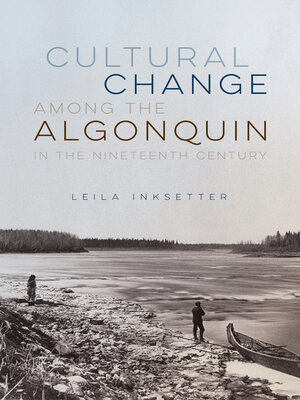Cultural Change among the Algonquin in the Nineteenth Century
ebook ∣ McGill-Queen's Indigenous and Northern Studies
By Leila Inksetter

Sign up to save your library
With an OverDrive account, you can save your favorite libraries for at-a-glance information about availability. Find out more about OverDrive accounts.
Find this title in Libby, the library reading app by OverDrive.



Search for a digital library with this title
Title found at these libraries:
| Library Name | Distance |
|---|---|
| Loading... |
The nineteenth century was a time of upheaval for the Algonquin people. As they came into more sustained contact with fur traders, missionaries, settlers, and other outside agents, their ways of life were disrupted and forever changed. Yet the Algonquin were not entirely without control over the cultural change that confronted them in this period. Where the opportunity arose, they adapted by making decisions and choices according to their own interests.
Cultural Change among the Algonquin in the Nineteenth Century traces the history of settler-Indigenous encounter in two areas around the modern Ontario-Quebec border, in the period after colonial incursion but before the full effects of the Indian Act of 1876 were felt. While Lake Timiskaming was the site of commercial logging operations beginning in the 1830s, the Lake Abitibi region had much less contact with outsiders until the early twentieth century. These different timelines permit comparison of social and cultural change among Indigenous peoples of these two regions. Drawing on nineteenth-century archival sources and twentieth-century ethnographic accounts, Leila Inksetter sheds new light on band formation and governance, the introduction of elected chiefs, food provisioning, environmental changes, and the interaction between Indigenous spirituality and Catholicism.
Cultural change among the nineteenth-century Algonquin was experienced not only as an uninvited imposition from outside but as a dynamic response to new circumstances by Indigenous people themselves. Inksetter makes a case for greater recognition of Algonquin agency and decision making in this period before the implementation of the Indian Act.







